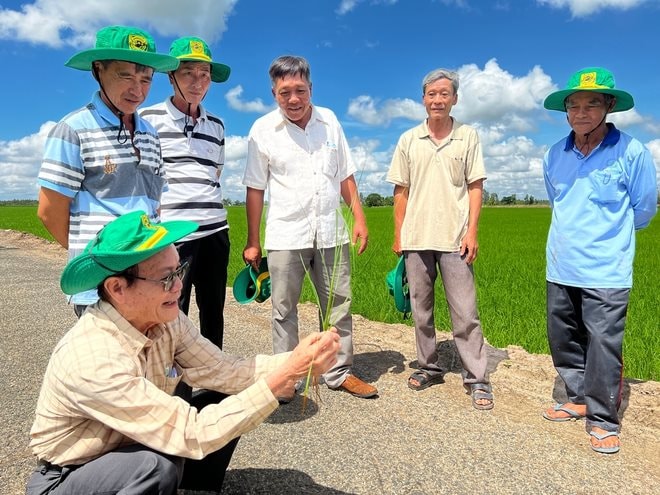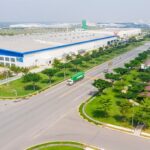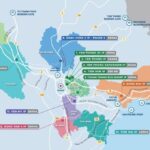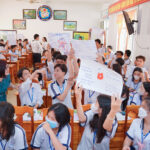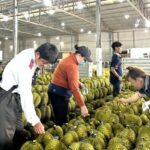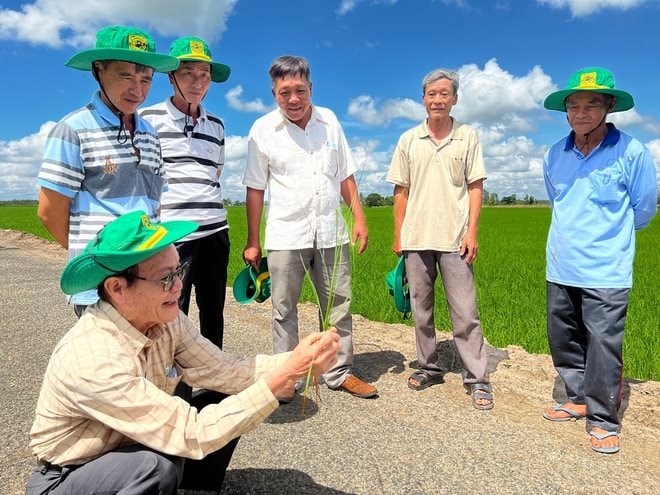
The Binh Dien Fertilizer Joint Stock Company guides farmers through their Smart Rice Cultivation program.
“We will refuse if customers request things that are harmful to the environment.”
“How can a fertilizer company advise farmers to use less fertilizer and still make a profit?” This is a question that Mr. Ngo Van Dong, CEO of Binh Dien Fertilizer Joint Stock Company, has often encountered since his company started guiding farmers through their Smart Rice Cultivation program.
At first glance, the “1 must, 6 reductions” technique that Binh Dien’s engineers teach the farmers seems counterintuitive. After all, the first reduction they emphasize is “reducing excessive nitrogen fertilizer use.”
However, Mr. Dong and his colleagues think differently. The entrepreneur shared, “Profit comes from the linkage between farmer households and enterprises, and the stronger this linkage, the more effective our business will be. It is the farmers who bring us private production results, and we, in turn, must think of ways to better serve them.”
The story of “refusing customers” seems counterintuitive, but it takes a very positive turn, not just at Binh Dien. At Six Senses Ninh Van Bay, one of Vietnam’s leading luxury resorts, guests can have many demands met to very high standards, but they will politely and tactfully refuse requests for products and services that may harm the environment, such as caviar. General Manager Benjamin Kreuz states that Six Senses Ninh Van Bay does not offer products or services that contradict sustainable development standards.
Sustainable development is no longer an option but a mandatory requirement for businesses in this day and age. The ESG criteria – Environment, Social, and Governance – have become a compass for organizations aiming to balance economic profits with community and environmental responsibilities. According to international reports, such as those from the United Nations and financial organizations, implementing the UN Sustainable Development Goals (SDGs) could create business opportunities worth up to $12 trillion per year by 2030, especially in areas like energy, food, agriculture, and sustainable urbanization.
However, financial barriers present a challenge for organizations and businesses when it comes to adopting sustainable development practices. Ms. Mai Kieu Lien, CEO of Vinamilk, shared: “When we introduce sustainable development products, the cost will be higher. Low-income earners cannot accept price changes immediately. Therefore, we need a clear message and a gradual approach; it cannot happen overnight.”
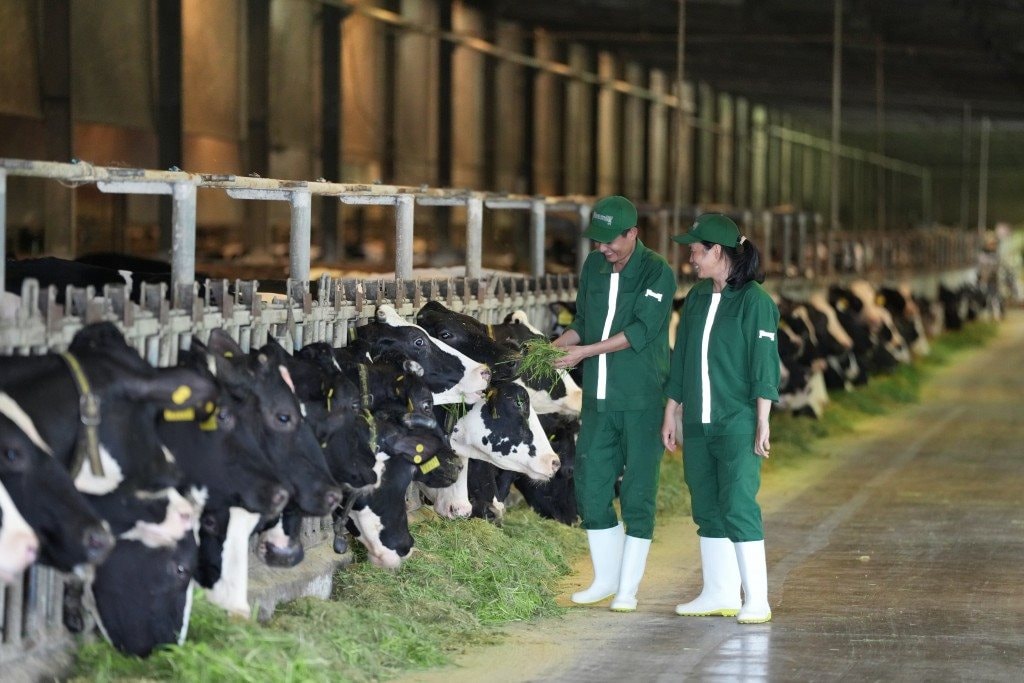
Vinamilk’s eco-farm model, “Vinamilk Green Farm,” is oriented towards sustainable agriculture and emission reduction. Photo: Vinamilk
In Vietnam, many large enterprises have pioneered integrating ESG into their business strategies or allocating significant budgets for community programs, such as L’Oréal’s “Beauty For A Better Life” project. They are willing to sacrifice short-term profits for higher productivity, market expansion, or more significant and long-lasting impacts on their businesses and the community.
As Vietnam deeply integrates into the global economy, implementing ESG and CSR initiatives not only enhances businesses’ reputations but also creates sustainable competitive advantages.
Towards Making Vietnam a Model for Community Development Projects
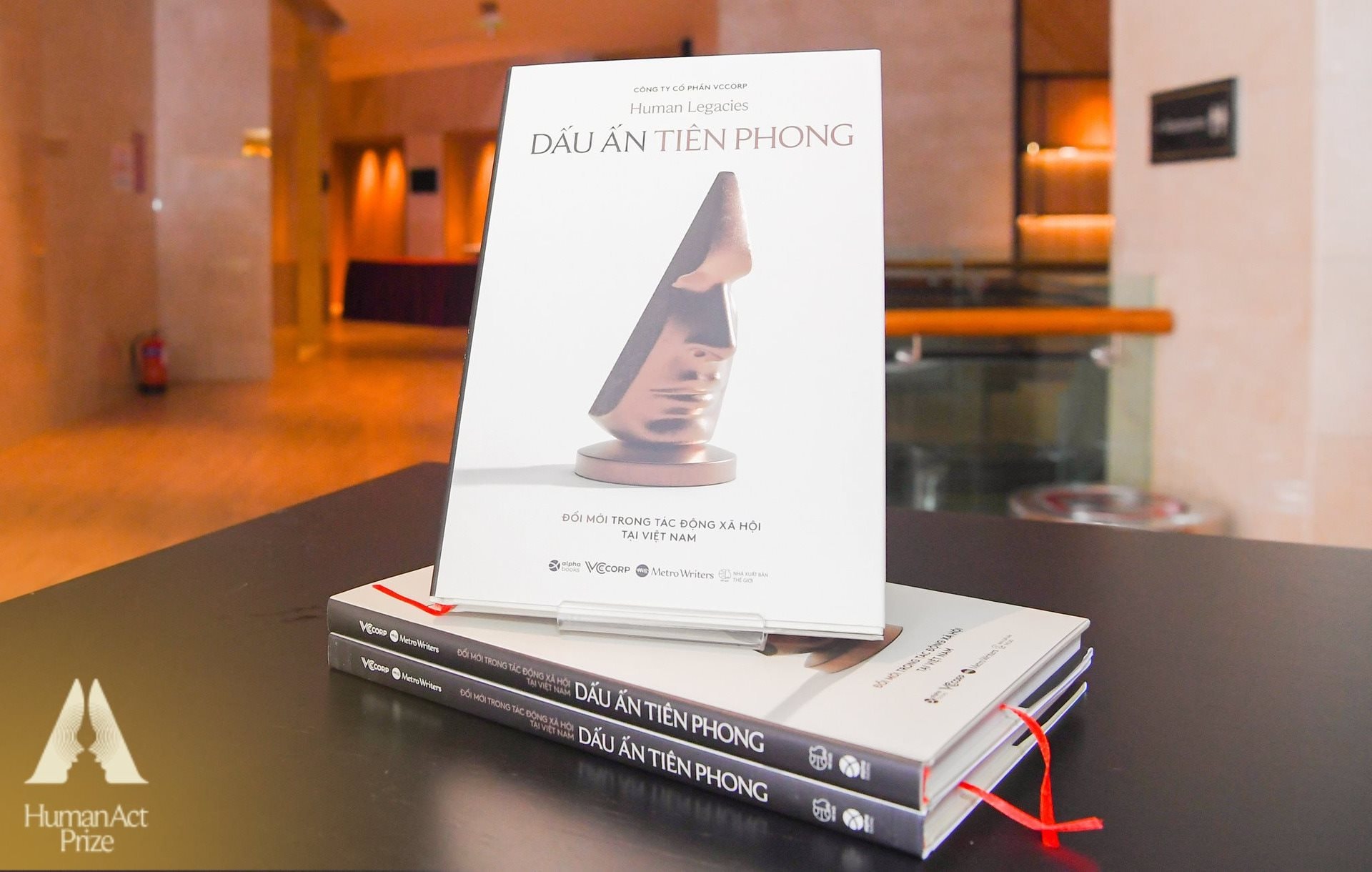
The book “Human Legacies – Dấu ấn tiên phong” (Pioneering Legacies) is published by VCCorp in collaboration with Alpha Books and Metro Writers, and published by The Gioi Publishers.
The experiences of Vinamilk, L’Oréal, Binh Dien Fertilizer, and Six Senses Ninh Van Bay are inspiring stories of community engagement and sustainable development featured in the book “Human Legacies – Dấu ấn tiên phong” (Pioneering Legacies) published by VCCorp in collaboration with Alpha Books and Metro Writers, and published by The Gioi Publishers.
“Human Legacies” is not just a book but a journey that captures the efforts of enterprises in building a greener and more sustainable Vietnam, with effective and far-reaching social impact projects. The book focuses on notable initiatives, ranging from environmental protection and community care programs to improvements in corporate governance for transparency and accountability. Three representative projects mentioned in the publication are Vinamilk’s “Vinamilk Pathways to Dairy Net Zero 2050” and “Vươn cao Việt Nam” (Vietnam’s Height Enhancement) Milk Fund, and L’Oréal Vietnam’s “Beauty For A Better Life.”
These initiatives not only demonstrate the strong commitment of the two enterprises to sustainable development but also inspire other projects, especially in addressing complex issues such as financial barriers, building trust, and finding technical solutions.
At the time of its launch (September 2024), journalist and social activist Tran Mai Anh – a jury member of the Community Action Award – Human Act Prize, shared that “Human Legacies” would include analyses of the 2023 Human Act Prize projects. The goal is to provide practical experiences and lessons for implementing community projects. Instead of analyzing individual social projects, the book also discusses models of cooperation between society and the community and compiles theories related to social impact from international and Vietnamese experiences.
“Human Legacies” also emphasizes the role of collaboration between businesses, the government, and the community in achieving sustainable development goals. These initiatives benefit individual businesses and contribute to fulfilling the UN Sustainable Development Goals (SDGs) in Vietnam.
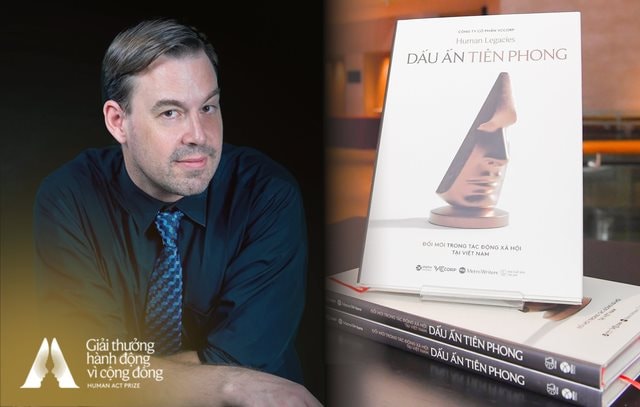
Mr. Michael Arnold, CEO of Metro Writers, the unit involved in writing and editing the book.
Notably, the publication, “Human Legacies,” will be translated into English. “What we want,” shared Michael Arnold, CEO of Metro Writers, the unit involved in writing and editing the book, “is to give Vietnam the opportunity to lead the world and be an exemplary case study for other nations to learn from when it comes to community projects.”
The Evolution of Vietnam’s Industrial Zones: Positioning for the ESG and Digital Transformation Era
The Vietnam Industrial Park Development Forum 2025 focuses on pivotal topics such as sustainable industrial park development orientations for the 2025–2030 period, promoting infrastructure investment linked to socio-economic development, and establishing eco-friendly and smart industrial park models.
In 2025, Viglacera Aims for a Consolidated Profit of 1,743 Billion VND
With a successful track record in 2024, and leveraging the positive impact of economic governance policies and the government’s efforts to alleviate challenges in the real estate market, Viglacera Corporation – Joint Stock Company has charted an ambitious course for 2025. The company has set its sights on surpassing VND 14,000 billion in consolidated revenue.
“Shinhan Life Vietnam Launches Career Guidance Program: S-Career 2025”
Shinhan Life Vietnam, in collaboration with SIF Career Education, proudly presents the second season of the S-Career program for high school students at Tac Van High School. Through this initiative, Shinhan Life aims to empower the future workforce of Vietnam by providing them with the essential information and knowledge they need to make informed decisions about their career paths, aligning with their abilities and aspirations.
The King of Fruits: Where Does Vietnam’s Durian Industry Stand?
The durian, a formidable fruit dubbed the “King of Fruits”, deserves a prestigious reputation that matches its unique flavor and aroma. To elevate this exquisite produce to the status of a national brand, a comprehensive overhaul of the production and export system is imperative. This includes stringent monitoring and punitive action against fraudulent practices and the use of prohibited substances. The Minister of Agriculture and Rural Development emphasizes the importance of commensurate investment to match the ambition of positioning durian as a strategic national product.

